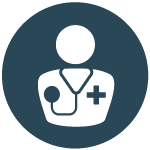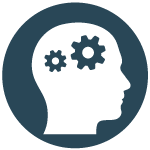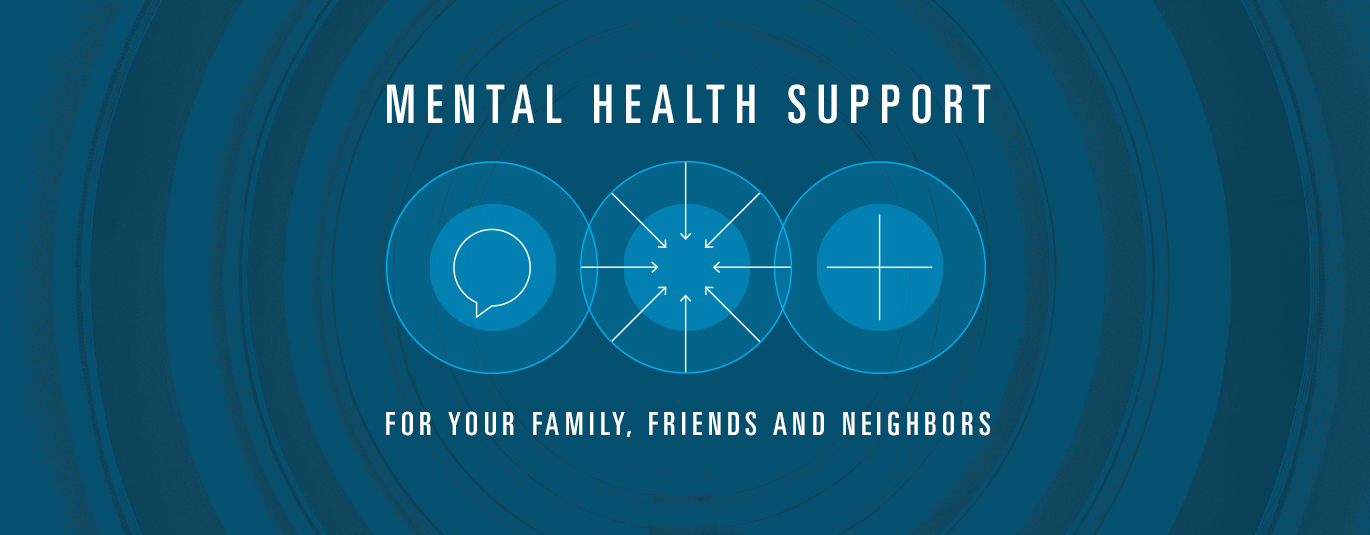What is Behavioral Health?
Behavioral health is the broader term for mental health conditions, such as depression, anxiety, ADHD and trauma, and substance use disorders characterized by overuse of drugs or alcohol.
It’s normal to experience ups and downs in life, but when your emotions or behaviors start to impact your relationships or your health, it’s time to act. Behavioral health concerns can strain your family, your job, even your finances. But you don’t have to go through it alone. Blue Cross and Blue Shield of North Carolina (Blue Cross NC) is here to help. Our nurse advocates, together with your primary care provider (PCP) and behavioral health providers in our network, are ready to give you the support you need to live your best life.
Behavioral health is part of your total health, so take good care of yourself. And please reach out if you need support. Your team is ready and waiting. Explore this page to learn about ways to get help and what you can do to stay healthy in both body and mind.
1 in 5 Americans will experience a behavioral health disorder in a given year.1

Your Total Health Team
Did you know that if you need it, you have a care team to focus on your total health?

Your Primary Care Provider (PCP)
Your PCP is your total health manager, helping you decide what care you need and connecting you to that care. With the tools we provide, PCPs can better identify issues, understand when your physical health is being affected and help other providers with their knowledge about you.

Behavioral Health Providers
Behavioral health providers – including therapists, psychologists, psychiatrists and addiction counselors – can coordinate your care and their treatment with your PCP. You don’t need a referral from your PCP to seek help, though it helps to keep them informed.

Blue Cross NC Nurse Advocates
Our nurse advocates can advise you over the phone. They are case managers who advocate for you, answer your questions and direct you to the right help at the right time. They can also help you with processes and paperwork if you ever need assistance.
Possible Signs of a Problem
Physical Signs:
- Feeling tired, low energy
- Difficulty sleeping/sleep changes
- Appetite changes
- Decline in personal care/hygiene
- Odd or uncharacteristic behavior
Emotional Signs:
- Feeling sad
- Excessive fears or worries
- Withdrawal from friends or previously enjoyed activities
- Difficulty with regular tasks, changes in grades/work performance
- Anger or irritability
How Do I Get Help?
Use Headway to find the best in-network mental health provider for your needs and preferences, across specialty, location, virtual or in-person care, personality, and race, language, and ethnicity. You can choose a date and time and book your first appointment in as soon as 48 hours.
Need help finding an outpatient behavioral health care provider? Use Quartet. Quartet can quickly match you to care based on your Blue Cross NC plan, needs and preferences.2
Use Shatterproof's ATLAS to find an addiction and substance use disorder treatment facility for you or a loved one.3

Talk to your primary care provider. He or she can address your concerns in the office or refer you to a behavioral health provider.

Access our Blue ConnectSM member site to find an in-network provider. Search for keywords like: Psychologist, Psychiatrist, Social Worker, Therapist, Substance Use or Counselor.

Call the Blue Cross NC Customer Service number on the back of your member ID card. We will help connect you to a high-quality behavioral health provider or program.

Use your Employee Assistance Program (EAP), if available.3
Access therapy or psychiatry through your Telehealth benefit, if available.4
If you are in crisis, call the National Suicide Prevention Lifeline: 1-800-273-8255.5
The Right Care at the Right Time
Behavioral health concerns are related to physical health problems, and they often occur together. We’re working with your PCP and behavioral health professionals to treat your whole self by making information sharing – about you – easier.
One of the ways we do this is by giving PCPs tools that can identify the behavioral health services you need at the right time. The right service when it's right for you might mean your PCP addresses your concerns in the office, refers you to a community-based therapist or psychiatrist, or even connects you to virtual therapy you can access from your smartphone or computer.
You don’t need a referral from your PCP to seek help, but your PCP can help you best by being involved in your total care management.
Managing Your Total Health Together: The Process
- You visit your PCP and talk about behavioral health concerns.
- Your PCP identifies behavioral health conditions and gets you the help you need.
- Behavioral health providers communicate with you and your PCP.
- You call our nurse advocates when you need advice or have questions.
You start to feel better.
The Opioid Epidemic in North Carolina
The Opioid Epidemic in North Carolina
Visit our opioid site to learn about different aspects of the opioid crisis.
Are you worried for yourself or a loved one?
- Get our checklist of questions to ask when you're being prescribed opioids for pain
- Check our signs of possible addiction
- Get a phone number to call if you need help
- Find drop off locations for pills
Want to learn more about what's happening and why?
- Find out what Blue Cross NC is doing to help
- Learn what you can do personally to contribute to the solution

Shatterproof launches free addiction treatment locator tool
Non-profit organization Shatterproof rolled out a free online tool that helps people find high-quality addiction treatment programs.
The platform, called ATLAS (Addiction Treatment Locator, Assessment, and Standards), was funded by Arnold Ventures and the Robert Wood Johnson Foundation.











 Blue Connect
Blue Connect